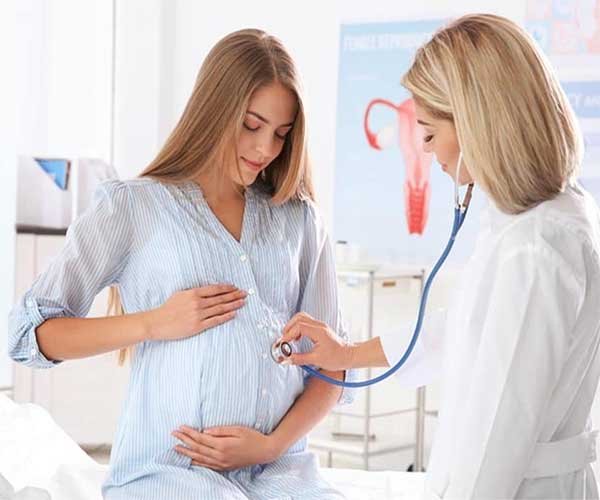Gynaecology
Personalised care for women of all ages by a team of internationally accredited gynaecologists
We provide treatment and care for a full range of gynaecological conditions affecting women from a young age to older ages. From providing a comprehensive and accurate diagnosis to supporting your treatment and recovery with women’s health physiotherapists, we offer a fully integrated approach to managing all aspects of your care. We specialise in the latest minimally invasive, laparoscopic techniques which can reduce time spent in hospital, and your recovery period. Our surgeons have performed more than 50,000 gynaecological surgeries. Our areas of expertise include urogynaecology, oncogynaecology, advanced laparoscopic procedures, family planning services and sexual health. Our multi-skilled care team uses the latest equipment and innovative procedures for diagnosis and treatments. The nursing team is trained in international and national standards of care to detect problems and provide emergency care. We have on-premise radiology and pathology facilities to handle the most complex of surgical cases with the utmost care.

Gynaecological conditions we treat
Menstrual disorders
Menstrual periods generally last 4 days to 7 days every 21 days to 25 days. Menstrual disorders include problems like heavy or irregular periods, excessive menstrual pain, bleeding between periods. Treatment plans are based on the cause and severity of the condition, the patient’s medical history, suitability of the treatment to the patient’s lifestyle and if the patient plans to have children in future.
Read More
Endometriosis
Endometriosis is a progressive condition in which the endometrial tissue (tissue that lines the inside of the uterus) starts growing outside the uterus. Endometriosis is often painful and can also lead to fertility problems. Treatments for endometriosis include removing the abnormal tissue through laparoscopy and hormone-based medications to control the growth of the tissue.
PCOS
Polycystic ovarian syndrome(PCOS) is a common hormonal condition that occurs among women of reproductive age. In this condition, the ovaries produce excess androgens (male sex hormones) and can also develop several small cysts. It is often characterised by irregular periods, excess facial and body hair, acne, male-pattern baldness and difficulty in conception. PCOD is generally treated through medication and lifestyle changes.
Uterine fibroids
Uterine fibroids are non-cancerous growths that occur on the muscular wall inside the uterus. They range in size and often cause pelvic pain, heavy periods, fertility problems and pregnancy complications such as preterm birthing. Uterine fibroids are generally removed through minimally invasive surgeries and hysteroscopy procedures.
Ovarian cysts
Ovarian cysts are abnormal fluid-filled sacs found in or on the ovaries. While many ovarian cysts are harmless, large cysts can lead to severe pelvic pain, bloating and fertility issues. Ruptured ovarian cysts can also cause severe health complications and require immediate medical intervention. This condition is generally treated based on the size and number of cysts with either one or a combination of medication and minimally invasive surgical procedures.
Pelvic floor disorders
Pelvic floor disorders affect a woman’s ability to urinate or have a bowel movement due to weakened pelvic floor muscles. Pregnancy and childbirth are two of the most common causes of this disorder among women. It is treated with either one or a combination of lifestyle changes, pelvic floor exercises, hormone treatment, vaginal pessaries (a device used to support uterine prolapse), and surgery.
Sexually transmitted diseases
Sexually transmitted diseases or sexually transmitted infections can be passed through unsafe sexual intercourse or from mother to child during pregnancy or childbirth. These include infections like gonorrhoea, chlamydia, genital herpes, and human papillomavirus (HPV). While most of these diseases can be prevented by practising safe intercourse with precautions.
Menopausal problems
Menopause is a natural phenomenon defined as the end of the menstrual cycle. It is diagnosed after 12 months of absent periods. During the time leading up to menopause or perimenopause, women can experience several unpleasant symptoms like hot flashes, chills, sleep disorders, and hair fall. These physical, emotional and behavioural changes are generally managed through hormone therapy, vaginal oestrogen and other medications as well as lifestyle modifications.
Why choose us?
Our gynaecology services and treatments are designed to meet the unique requirements of every woman. We offer a comprehensive and patient-focused treatment approach to address each aspect of women’s health in a comfortable and private environment. Our services are designed in a way that women stay at the top of their health, today and tomorrow.
Highlights of the department
- Internationally accredited experts with a combined experience of over 100 years
- Latest technology for minimally invasive procedures
- Expertise in simple to complex gynaecological conditions including gynae-oncology and uro-gynae
- State-of-the-art modular operation theatres
- Combined experience of over 50,000 gynaecological surgeries
